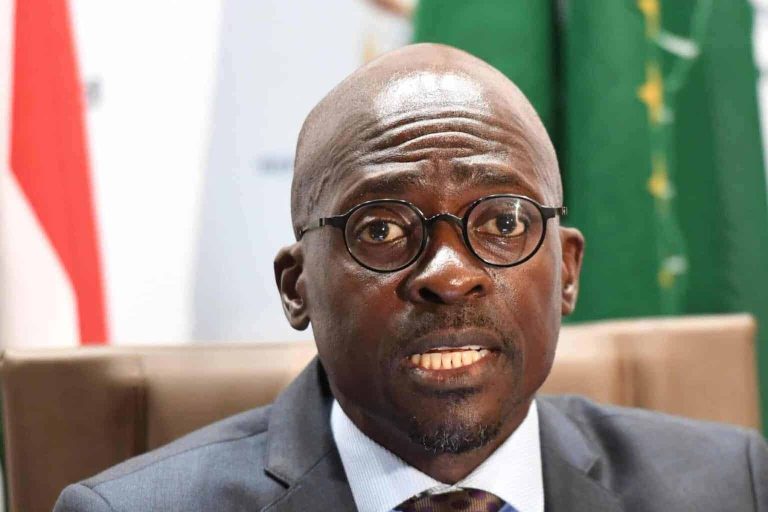
Inflation, forex volatility, and high Right of Way charges blamed for record industry expenses
Nigeria’s telecommunications sector recorded its highest-ever operating expenses (OPEX) in 2024, rising sharply to ₦5.85 trillion, according to new data released by the Nigerian Communications Commission (NCC).
The figure represents an 85 per cent jump from the ₦3.16 trillion recorded in 2023, a surge the Commission attributed to rising inflation, foreign exchange pressures, high energy costs, and excessive Right of Way (RoW) fees imposed by some state governments.
Operators Struggle Under Rising Costs
In its latest industry performance report, the NCC said most telecom licensees continued to face “harsh macroeconomic conditions” and inconsistent state policies that have driven operational costs higher.
“Most licensees complained of high Right of Way fees, harsh macroeconomic conditions, and rising inflation,” the report noted. “However, the Commission has secured zero RoW fees in some states in 2024.”
The Right of Way charge, a mandatory fee operators pay to lay fibre-optic cables across public land remains one of the biggest obstacles to broadband expansion in Nigeria. Despite the federal government’s approval of a uniform rate of ₦145 per linear metre in 2020, some states still charge far higher rates.
Ogun State tops the list at ₦9,477 per metre, followed by Lagos (₦6,264), Oyo (₦5,303), Cross River (₦4,737), Rivers (₦4,047), Edo (₦3,491), and Ondo (₦3,075).
Progress and Setbacks on RoW Charges
The NCC’s Executive Vice Chairman (EVC), Aminu Maida, disclosed that efforts to negotiate with state governments are gradually yielding results.
“In the past year, five additional states Adamawa, Bauchi, Enugu, Benue, and Zamfara joined those that have eliminated RoW charges,” Maida said. “This brings the total to 11 states now offering zero-cost RoW to accelerate broadband infrastructure deployment.”
However, analysts warn that the progress may not be enough to meet Nigeria’s broadband penetration target of 70 per cent by 2025. As of September 2025, penetration stood at 49.3 per cent, signalling that high costs and policy inconsistencies continue to slow infrastructure rollout.
“One of the most significant barriers to broadband deployment remains the high RoW fees charged by some states,” Maida said. “Despite the agreement by the Nigerian Governors’ Forum to fix the rate at ₦145, elevated fees have delayed or reduced network expansion.”
Industry Operators Raise Concerns
Echoing the Commission’s concerns, the Chairman of the Association of Licensed Telecommunications Operators of Nigeria (ALTON), Engr. Gbenga Adebayo, said multiple taxes and hidden levies continue to discourage private investment in the telecom industry.
“Multiple taxation, excessive RoW charges, and hidden levies imposed by some states are discouraging investment,” Adebayo said. “Even in states that claim to have waived the fees, operators still face backdoor charges in the form of education taxes and highway levies.”
He warned that without stronger policy enforcement and nationwide rate harmonisation, Nigeria’s vision of universal broadband access and digital inclusion could remain out of reach.
“Without affordable access for operators, the cost burden will continue to trickle down to consumers,” Adebayo stressed.
Capital Expenditure Also Surges
The NCC report also revealed that operators’ capital expenditure (CAPEX) rose sharply by 159 per cent year-on-year, climbing from ₦1.12 trillion in 2023 to ₦2.9 trillion in 2024.
The increase was largely driven by the impact of exchange rate unification and inflation, which inflated the cost of imported network equipment.
“These CAPEX figures reflect not only new infrastructure builds but also the increased cost of maintaining competitive service quality,” the NCC stated, adding that operators invested heavily in network modernization, fibre expansion, and 5G rollout despite the economic headwinds.
Revenue Growth Despite Challenges
Despite the record-high expenses, Nigeria’s telecom industry still posted an impressive 44.7 per cent revenue growth, rising from ₦5.30 trillion in 2023 to ₦7.67 trillion in 2024.
This growth, according to the report, was fuelled by higher data consumption, rising subscription rates, and increased uptake of enterprise and digital services.
Industry observers said the figures reaffirm the sector’s position as one of Nigeria’s most resilient economic drivers, contributing significantly to GDP even amid inflation and currency pressures.
Tariff Adjustments to Cushion Cost Pressure
In response to escalating costs and shrinking margins, the NCC earlier in 2024 approved a 50 per cent tariff adjustment for telecom operators, enabling them to pass part of their cost burden to consumers.
A telecom industry source told our correspondent that the review provided much-needed relief for major players.
“The tariff adjustment helped operators like MTN return to profitability after several quarters of pressure,” the source said.
NCC Reaffirms Commitment to Affordable Connectivity
Maida reaffirmed the Commission’s commitment to working with all stakeholders to reduce the cost of doing business in the sector and promote affordable connectivity.
“Affordable and harmonised Right of Way charges are critical to our broadband and digital economy goals,” the EVC said. “The Commission remains committed to ensuring that Nigeria achieves sustainable connectivity growth for all citizens.”



